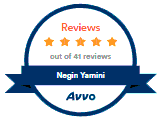Is your criminal record holding you back? Are you seeking ways to clear your record? Whether you are seeking to remove a civil or criminal case from public view or looking to have a criminal conviction expunged, record clearing in California can be a very helpful tool to getting your life back on track and achieving the goals you seek.
Of course, while record clearing can offer immense benefits, there are some drawbacks to record clearing as well. Unfortunately, record clearing is not a silver bullet that automatically reverses or entirely erases any effect of your criminal record.
At Record Expungement Attorney, we want to arm you with the most information regarding your record clearing. We put together this article to help you understand that while record clearing can be beneficial in many aspects, there are a number of drawbacks to record clearing, as well. Of course, these drawbacks do not apply to each and every situation of record clearing, and some drawbacks are more common than others.
This article is intended to be informational in nature and not intended as legal advice. Seek an attorney with experience in record clearing and record expungement in California for specific advice on your legal case.
RECORD CLEARING IN CALIFORNIA
Record clearing is a somewhat generic term that refers to any number of ways you may be able to improve your personal criminal record. Record clearing generally refers to legal processes wherein the defendant petitions the court for a particular record clearing action. Record clearing can vary in names, types, and processes across all 50 states.
The State of California generally offers four types of record clearing:
- Record sealing, which can apply to most types of records, both civil and criminal
- Expungement, which applies only to criminal convictions, and is the first step in additional methods of record clearing
- Certificate of rehabilitation, which comes after a waiting period after your expungement and restores additional rights that you lost as a result of your conviction
- A governor’s pardon, which entirely erases the conviction but is notoriously difficult to obtain
While record sealing can help clear your record of many types of cases, many criminal convictions are not eligible for record sealing or expungement, particularly if those crimes involved sex acts with children, child pornography, or related activities or if you served time in a state prison (not a county jail) as part of your sentencing.
BENEFITS TO CLEARING YOUR RECORD
There are many benefits to clearing your record in California. Many people in civil cases seek record sealing because they want to protect their own privacy or the privacy of others, such as children or the companies they work for.
Even more beneficial is clearing your criminal record. Many places you may apply to – whether for a job opportunity, housing or apartment, or a financial need like a bank loan – will seek a criminal background check of you to determine your trustworthiness and liability. Upon seeing any mark on your criminal record, many companies immediately and automatically remove you from the running for that opportunity. A criminal record can easily stop you from achieve things you want or need in life – so clearing your record can provide immense help
Other people choose to clear their record to restore their right to bear arms or their right to vote or simply to improve their reputation within their community.
It is important to be aware that clearing your record in California can only help cases that occurred within the state. If you have a case record or a criminal conviction in another state or at the federal level, you must pursue record clearing within those jurisdictions.
DRAWBACKS TO CLEARING YOUR RECORD
With all the benefits, it may seem that record clearing can solve it all. Of course, the reality is that there are some drawbacks to record clearing, and we are outlining common ones in the following sections.
THE RECORD CLEARING PROCESS CAN BE DIFFICULT
Whether you are seeking a record seal or an expungement, the process of petitioning the courts can be confusing and tough to navigate. You may feel frustration at trying to gather information from various government agencies, and you may feel that the money spent on a lawyer can be better spent elsewhere.
Another difficult issue may be the size of your criminal record. Typically, each record clearing action only helps clear that specific case from your record. For instance, if you have an arrest as well as a misdemeanor conviction on your record, you may pursue a record sealing court order to move your arrest from public view and you may seek an expungement, or dismissal, of your conviction. But if you only petition the court to clear one of the two records, the other will remain visible and non-dismissed. This can complicate the issue, as you may have to spend more time, money, and resources in order to clear your record.
EXPUNGED CRIMINAL RECORDS CAN BE USED IN FUTURE CONVICTIONS
Expunging a single, specific criminal record generally means keeping it hidden or set aside from public requests for it. However, in the California criminal justice system, expunged crimes are often considered “priorable”. This means that if you are convicted of a future, later crime, any priorable crime, even if expunged, can be used to impose more severe sentencing because this new conviction is not a first-time offense.
A common example is that of a DUI conviction. When you are convicted of a DUI, you begin a 10-year window of time wherein any additional DUI conviction in that timeframe is treated as a second-time (or more) DUI and will thusly be punished more harshly. Even if your first DUI was expunged in accordance with California Penal Code 1203.4 for the sake of public records, that DUI is still used in the sentencing of a second DUI that occurs within the initial 10-year window.
YOU MAY STILL HAVE TO REPORT AN EXPUNGED CONVICTION
In California, an expunged conviction can be very beneficial in many scenarios, but there are specific situations where you may still need to disclose a conviction, even if it has been expunged.
- Running for public office. If you are seeking any public office, you are required to disclose all convictions, even those that have been expunged.
- Applying for or renewing a state license or certificate. California laws require that if you’re apply for or renewing an existing state license, such as a nursing license, or a certificate, like a teaching certificate, you are required to disclose every criminal conviction, including ones that have been expunged.
- Contracting with the California lottery. If you are seeking a work contract with the state lottery, all convictions, whether expunged or not, must be reported.
Interestingly, the expungements may help you obtain the goal you’re seeking, particularly a state license or certificate, as a state licensing board is less likely to see negative impact from a criminal conviction that has been expunged.
THE INTERNET MAKES IT HARDER TO TRULY CLEAR A RECORD
Clearing your record is one thing, but clearing history of the event that happened is an entirely different matter. Even if you’ve completely expunged your criminal record, the internet means it might still be detectable. In fact, in many states it is easier to simply Google a person online than perform a costly background check.
You may be able to have your criminal record cleared, but its legacy can continue to live online. If your arrest or conviction was significant, it may have been covered by the local newspaper. Even if it wasn’t a headlining story, your arrest or conviction could have been published in the local city or county’s police crime blotter, which may be published online or through local news establishments. Though you are expunged of a crime, a news agency has no interest in or obligation to going back to a years-old article to remove content specific to your arrest or conviction.
Popular websites like Twitter and Next Door are also used to track events that happen, whether from a police department’s official update of emergency responses to local and community members announcing when criminals on the sex offender list move into the neighborhood.
Another online spot to keep in mind? Archives. The internet’s archives are vast and may keep old versions of news outlets, as well as cached versions of webpages from spots like mugshots.com, which collates public records from across the country.
AN EXPUNGEMENT DOES NOT RESTORE ALL OF YOUR RIGHTS
Expunging your record means the court has set aside your legal conviction, but it does not mean that your crime did not occur. As such, some rights that are taken away upon a legal conviction remain even if your crime has been expunged.
The following sections outline common rights that are not reinstated upon an expungement:
RIGHT TO OWN A FIREARM IS STILL REVOKED
A citizen who has not been convicted of any crime has the right to own a legal firearm. However, upon conviction of certain crimes, your right to own a firearm is suspended for a certain amount of time.
For instance, California Penal Code section 1203.4 outlines common situations that are eligible for expungement. But it does not revoke the prohibition of citizens owning firearms once they have been convicted of certain crimes.
California Penal Code section 29800 further makes it illegal to use, own, or otherwise possess a firearm if any of the following conditions apply:
- You are convicted of a felony under U.S., California, or other state or country law.
- You are the subject of an outstanding warrant for a felony crime under U.S., California, or other state or country law.
- You have been convicted two or more times of threatening the public peace with use of a deadly weapon (other than a legal firearm).
DRIVER’S LICENSE
If you are expunged of a crime that involved you losing your driver’s license, your license is not restored to you upon expungement of the crime. Instead, your driver’s license must follow the full sentencing, whether a suspension for a few years or a complete, lifelong revocation of your driver’s license.
In the example of a DUI, for instance, it is common for your license to be suspended for a set amount of time. If you manage to get your conviction expunged before your license is restored to you, an expungement does not speed up the timeline for receiving your driver’s license. Furthermore, if you are convicted of repeat DUIs, the court may revoke your driving privileges altogether, so even if you expunge one or more of your DUIs, you likely will not have your driver’s license restored.
REGISTER AS A SEX OFFENDER
Depending on the sex crime involved, you may be eligible for an expungement. (Certain sex crimes that involve children, minors, or child pornography, among other types, are ineligible for record expungement.) However, even if your sex crime record is expunged, you are still required to register as a sex offender based on your sentencing and California Penal Code section 290.
Only more significant types of record relief, such as a certificate of rehabilitation or a governor’s pardon, may be options in order to relieve a registered sex offender of needing to fulfill this obligation.
EXPUNGEMENT DOESN’T PREVENT DEPORTATION
When non-citizens are convicted of crimes, the conviction has no effect on their legal status within the United States. That means that you are still subject to the consequences of a criminal conviction. If you are an immigrant, you can be subject to deportation and inadmissibility. Most immigration courts do not recognize post-conviction relief, such as record expungement, unless the conviction in question was invalid on legal terms.
But, expungement may offer some relief to non-citizens. For example, if you emigrated to the U.S. and are later convicted of a felony, you are likely unable to continue seeking legal status in the U.S. or to obtain immigration benefits such as applying for a green card. The expungement process may reduce your felony conviction to a misdemeanor, which may in turn make you again eligible for certain immigration benefits.
Based in Riverside, Record Expungement Attorney is a professional legal team who helps people across the Inland Empire take back control of their criminal records. Contact us today at 951-916-9248 to see how we can help you.









